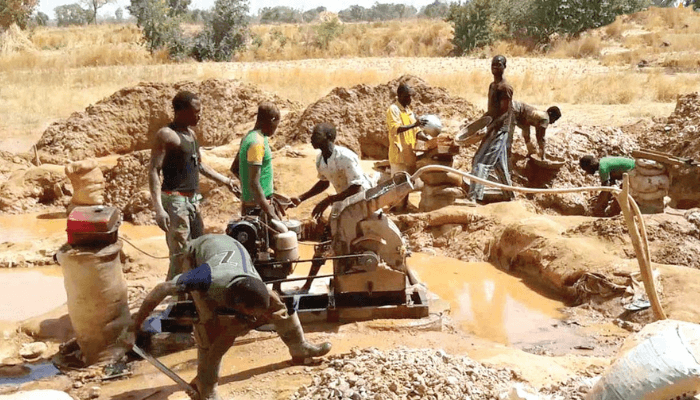Nigeria, a nation richly endowed with natural resources, stands on the cusp of an economic transformation. The oil and gas sector has predominantly driven the country’s economy for decades. However, in the face of fluctuating oil prices and the global shift towards renewable energy, Nigeria must diversify its economic base. Among the various sectors with growth potential, mining is a promising frontier that could significantly bolster Nigeria’s economic landscape.
The mineral wealth beneath Nigeria’s soil is vast and varied. From gold, lead, zinc, and tin to limestone, coal, and gemstones, the country is blessed with abundant mineral resources. Yet, despite this wealth, mining has remained largely underdeveloped and underutilised. This scenario presents a unique opportunity for Nigeria to harness its mineral resources for economic growth and development.
The Nigerian mining sector has historically been overshadowed by the oil industry, leading to its stagnation. However, recent geological surveys and exploratory studies indicate that Nigeria’s mineral reserves are far greater than previously estimated. For instance, the gold reserves in Zamfara, Osun, and Kaduna States are substantial, with potential to generate significant revenue. Similarly, the untapped coal deposits in Enugu and the limestone reserves in Sokoto and Ogun States could fuel industrial growth and power generation.
Developing the mining sector can play a pivotal role in diversifying Nigeria’s economy. Relying heavily on oil has made the economy vulnerable to global market fluctuations, leading to economic instability. By investing in mining, Nigeria can reduce its dependence on oil and create a more resilient economic structure. The mining industry has the potential to generate substantial revenue through exports, attract foreign direct investment (FDI), and stimulate growth in other sectors such as manufacturing and construction.
Moreover, the mining sector holds immense potential for job creation. The establishment of mining operations, processing plants, and ancillary industries can provide employment opportunities for millions of Nigerians. This not only reduces the unemployment rate but also empowers local communities and fosters inclusive economic growth.
Recognising the potential of the mining sector, the Nigerian government has initiated several policies and reforms to attract investment and stimulate growth. The Ministry of Mines and Steel Development has been proactive in creating a conducive environment for mining activities. Key initiatives include the establishment of the Mining Cadastre Office for transparent licensing, the creation of the Nigerian Solid Minerals Development Fund, and the implementation of the Roadmap for the Growth and Development of the Nigerian Mining Industry.
These efforts are aimed at addressing the challenges that have hindered the growth of the mining sector, such as inadequate infrastructure, regulatory bottlenecks, and lack of access to finance. By streamlining processes, improving infrastructure, and providing financial incentives, the government is laying the foundation for a thriving mining industry.
While the prospects of mining are promising, it is crucial to address the environmental and social impacts of mining activities. Sustainable mining practices must be adopted to ensure that the exploitation of mineral resources does not lead to environmental degradation. This includes implementing strict regulations on waste management, land reclamation, and water use.
Additionally, mining operations must prioritise the well-being of local communities. Corporate social responsibility (CSR) initiatives, such as building schools, healthcare facilities, and providing clean water, can significantly improve the quality of life for residents in mining regions. Engaging with local communities and ensuring that they benefit from mining activities is essential for fostering goodwill and preventing conflicts.
For Nigeria to fully realise the potential of its mining sector, it must embrace technological advancements and invest in skill development. Modern mining techniques and equipment can increase efficiency, reduce environmental impact, and enhance safety. Investing in research and development (R&D) can also lead to discovering new mineral deposits and developing innovative processing methods.
Attracting both domestic and international investment is key to unlocking the potential of Nigeria’s mining sector. The government must continue to enhance the regulatory framework to make it more investor-friendly. Providing tax incentives, ensuring legal protections, and offering clear and stable policies can create a favorable investment climate.
Furthermore, promoting Nigeria’s mining potential at international forums and engaging with global mining giants can attract much-needed capital and expertise. By showcasing success stories and highlighting the country’s mineral wealth, Nigeria can position itself as a leading mining destination.





